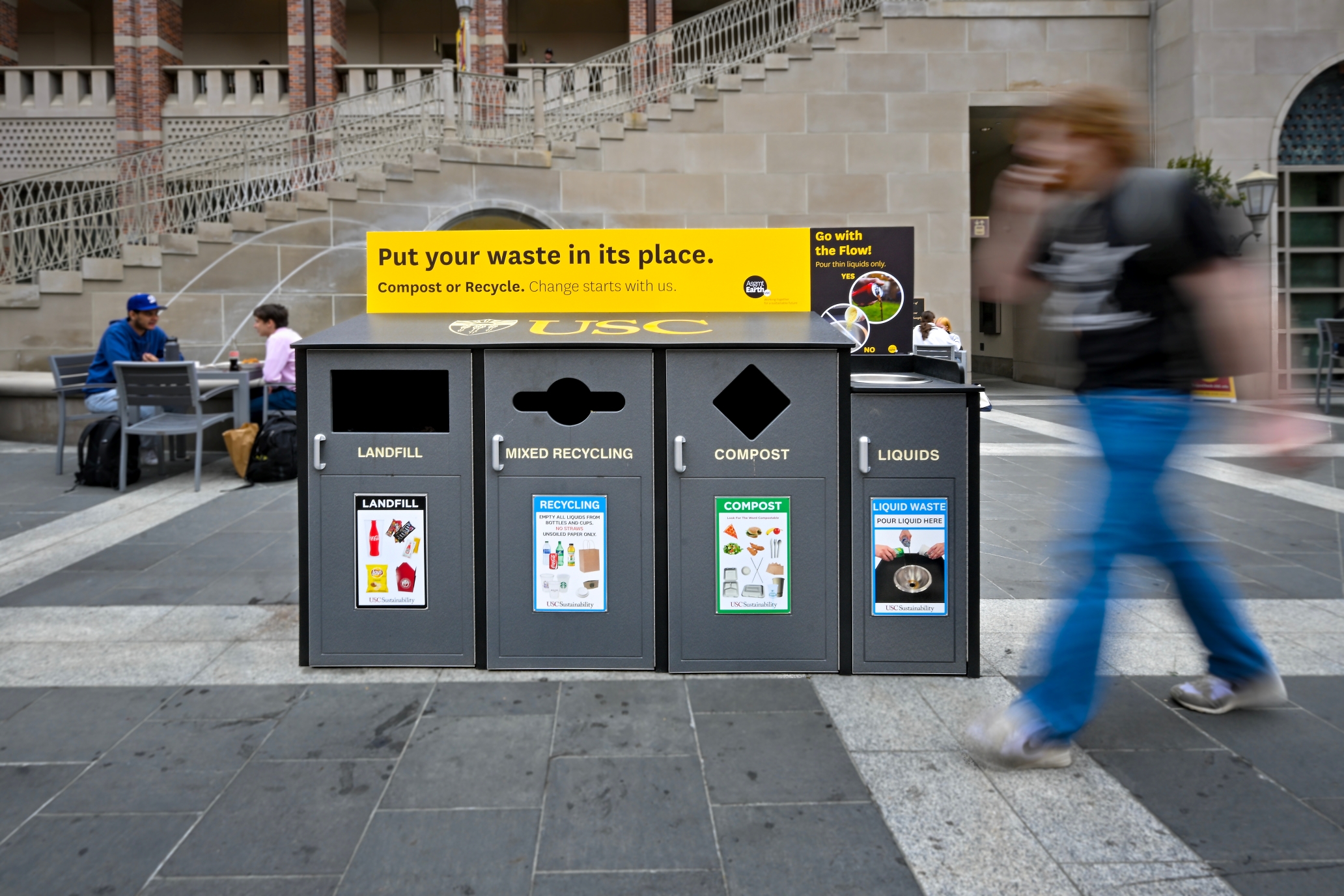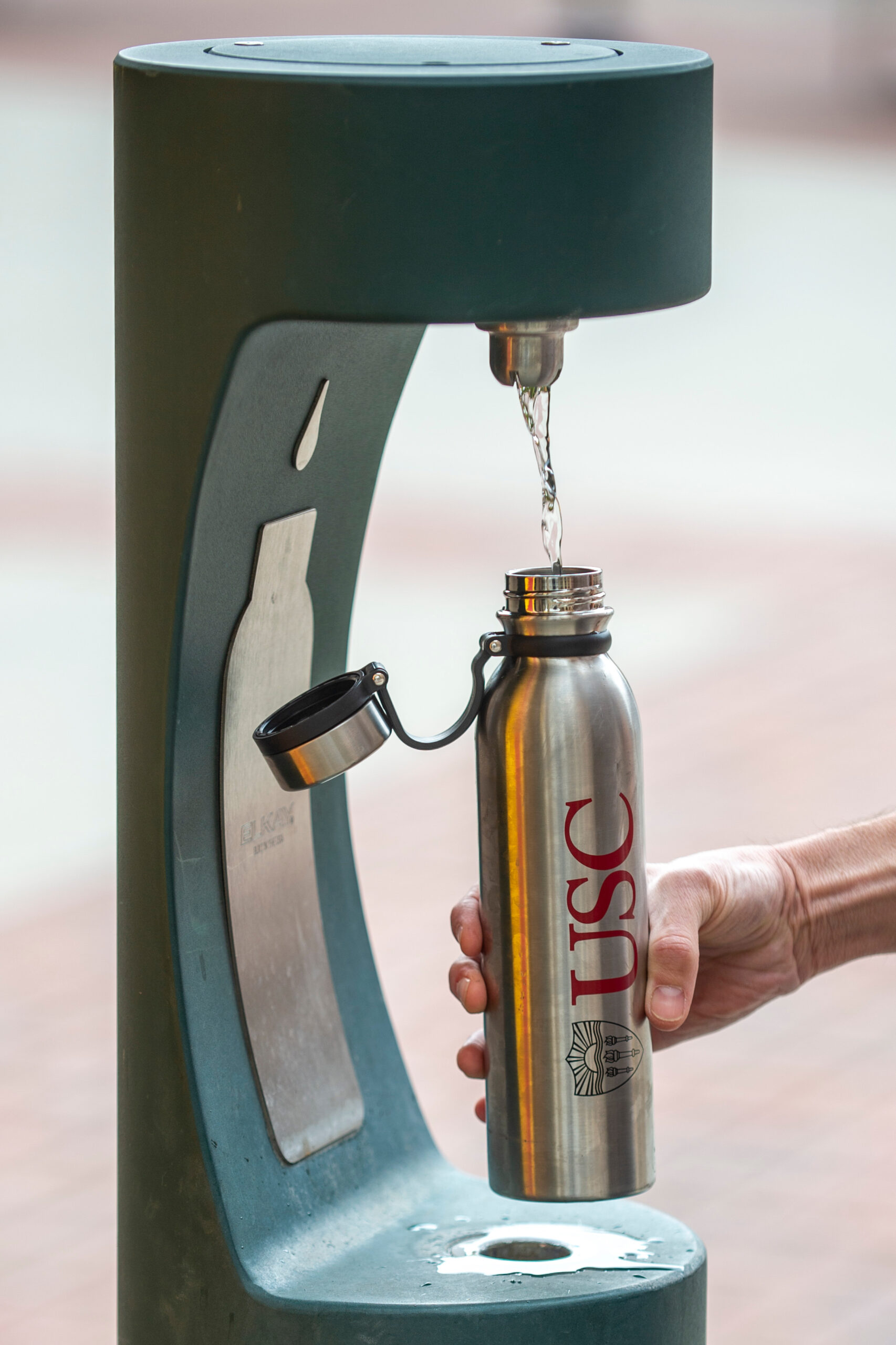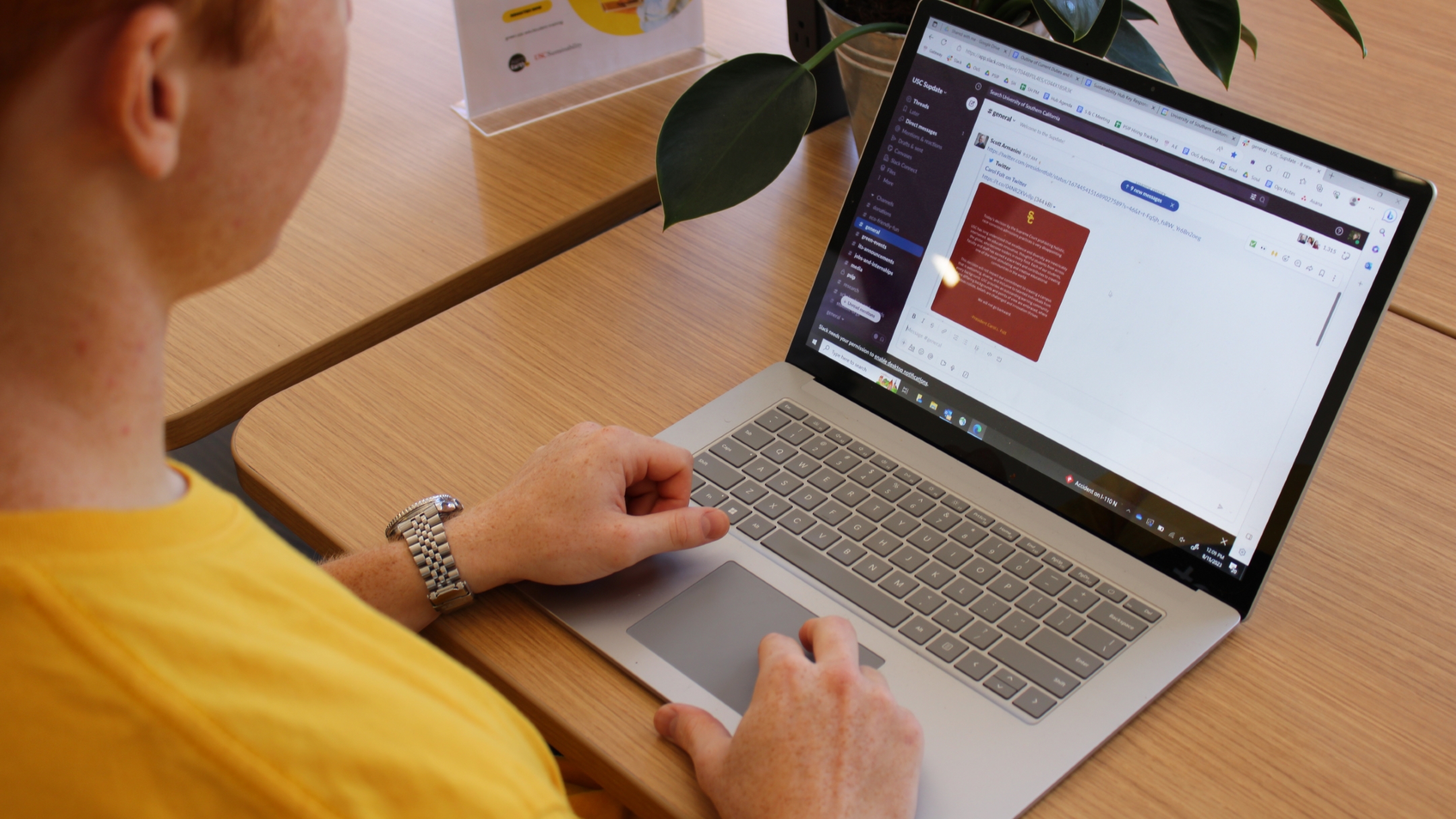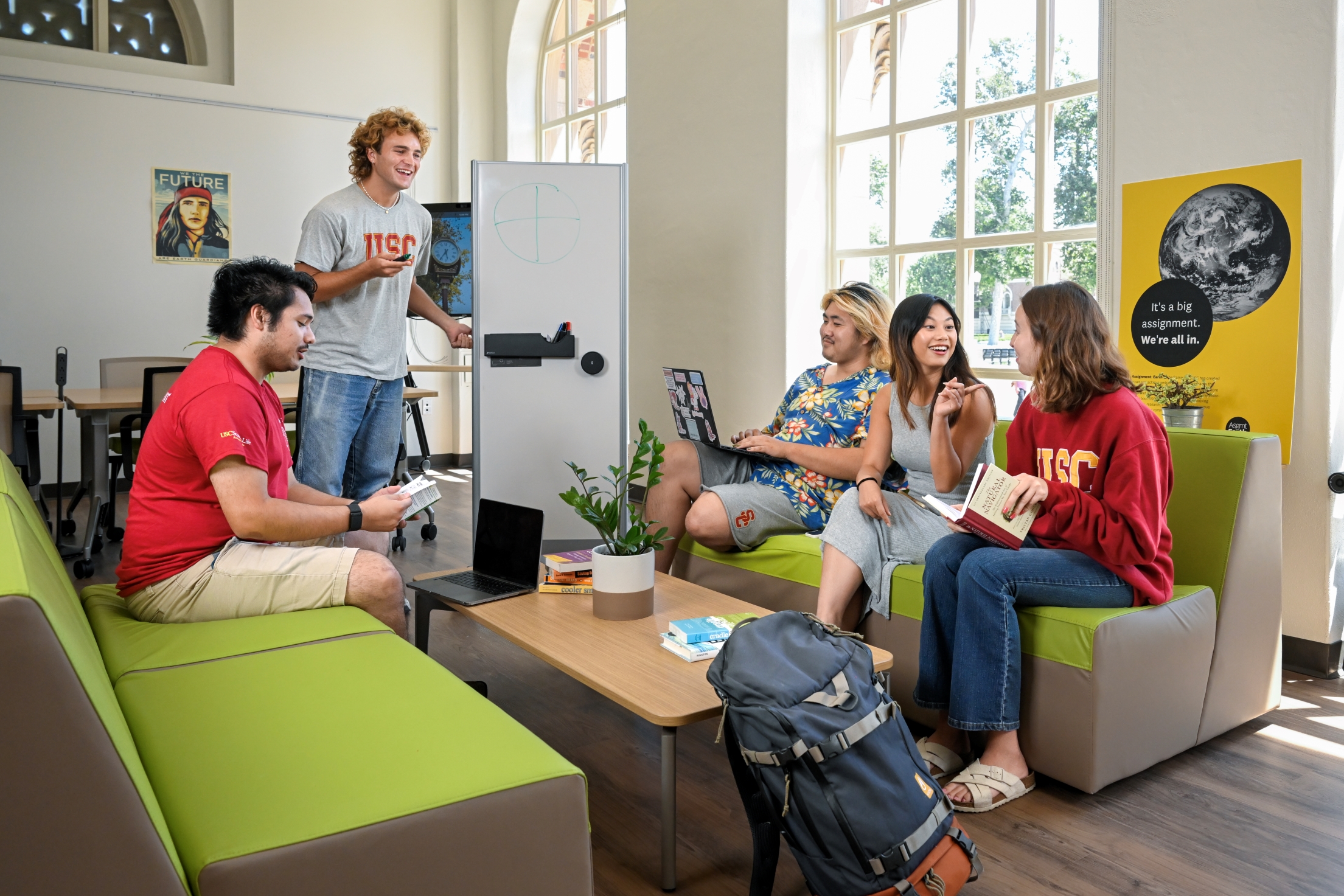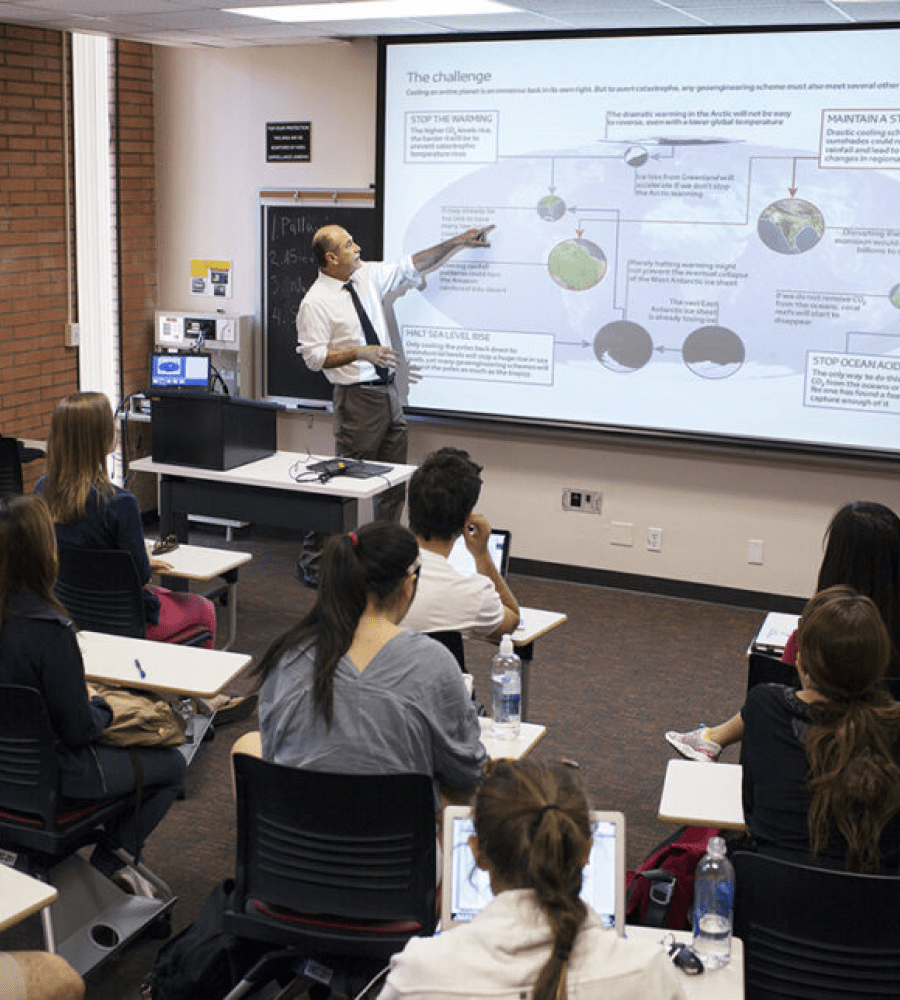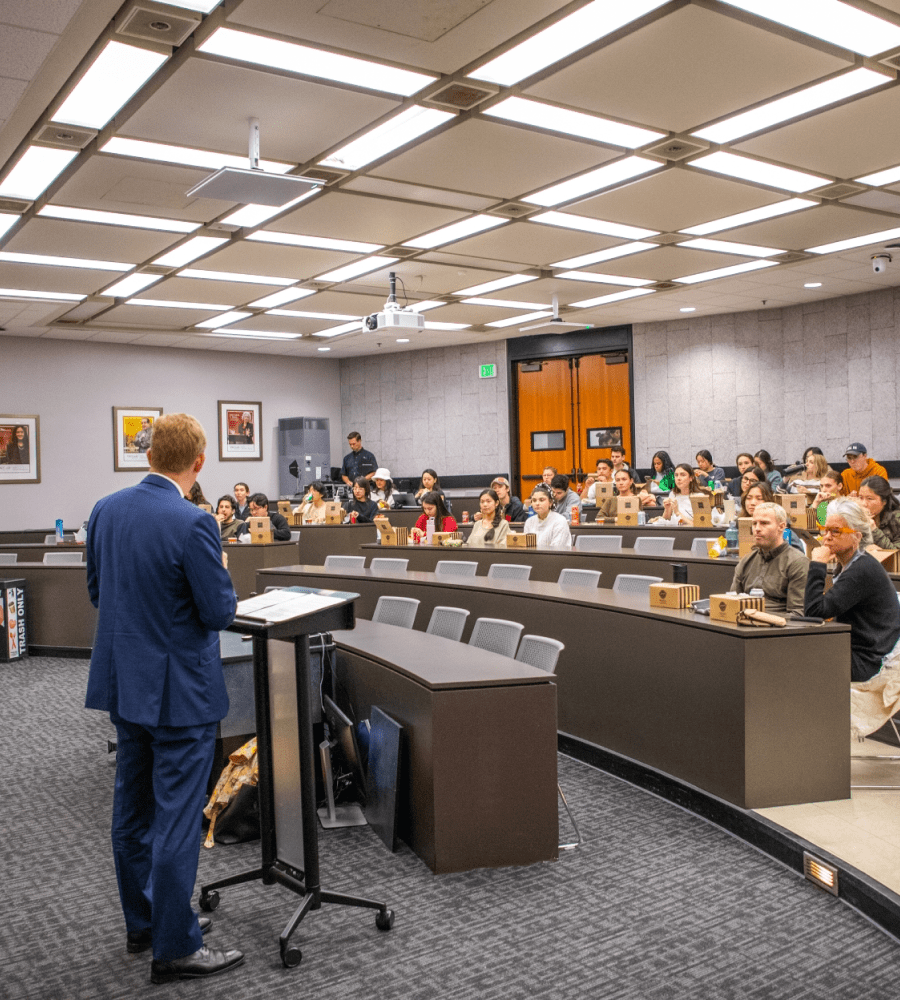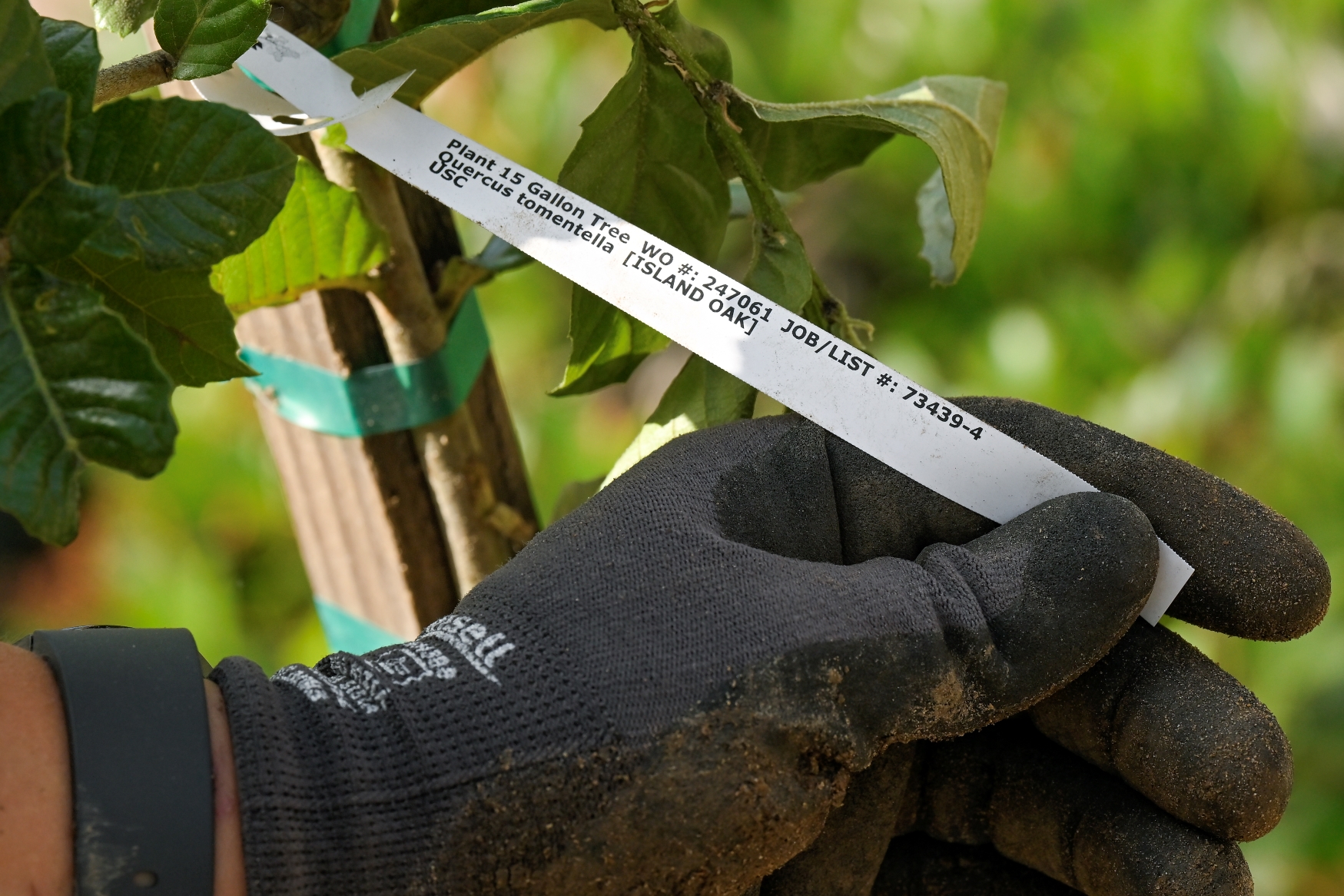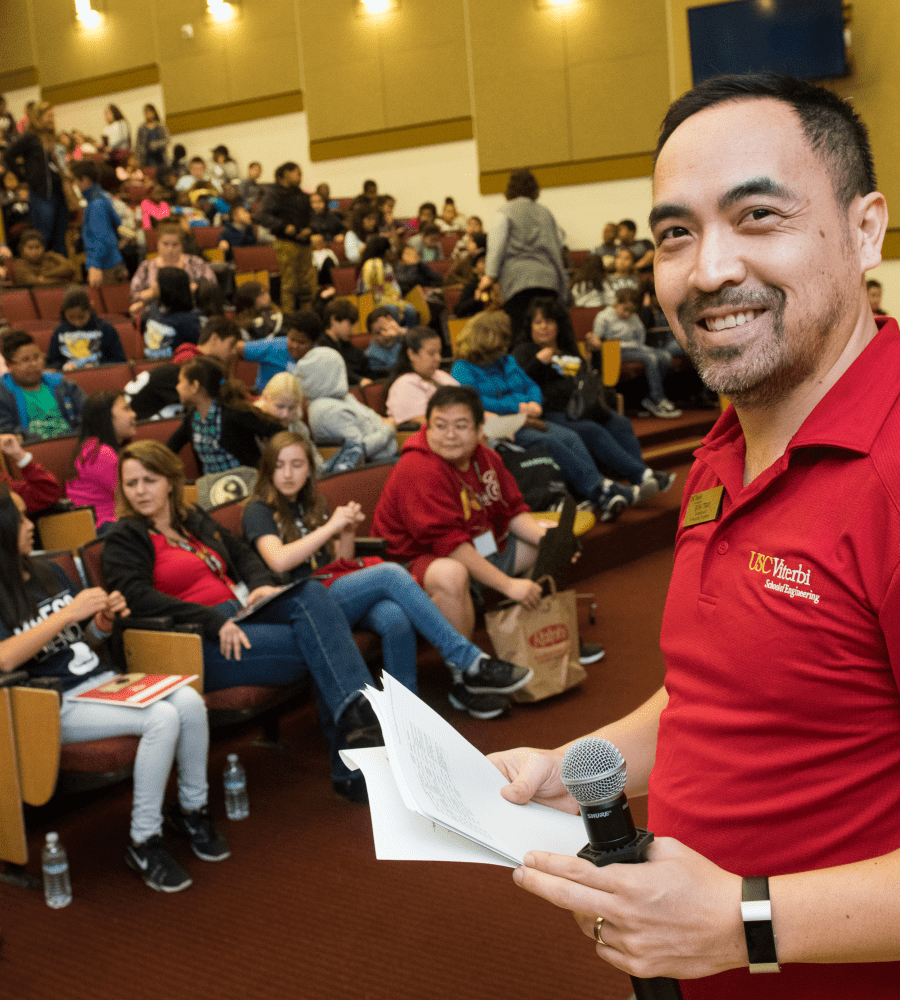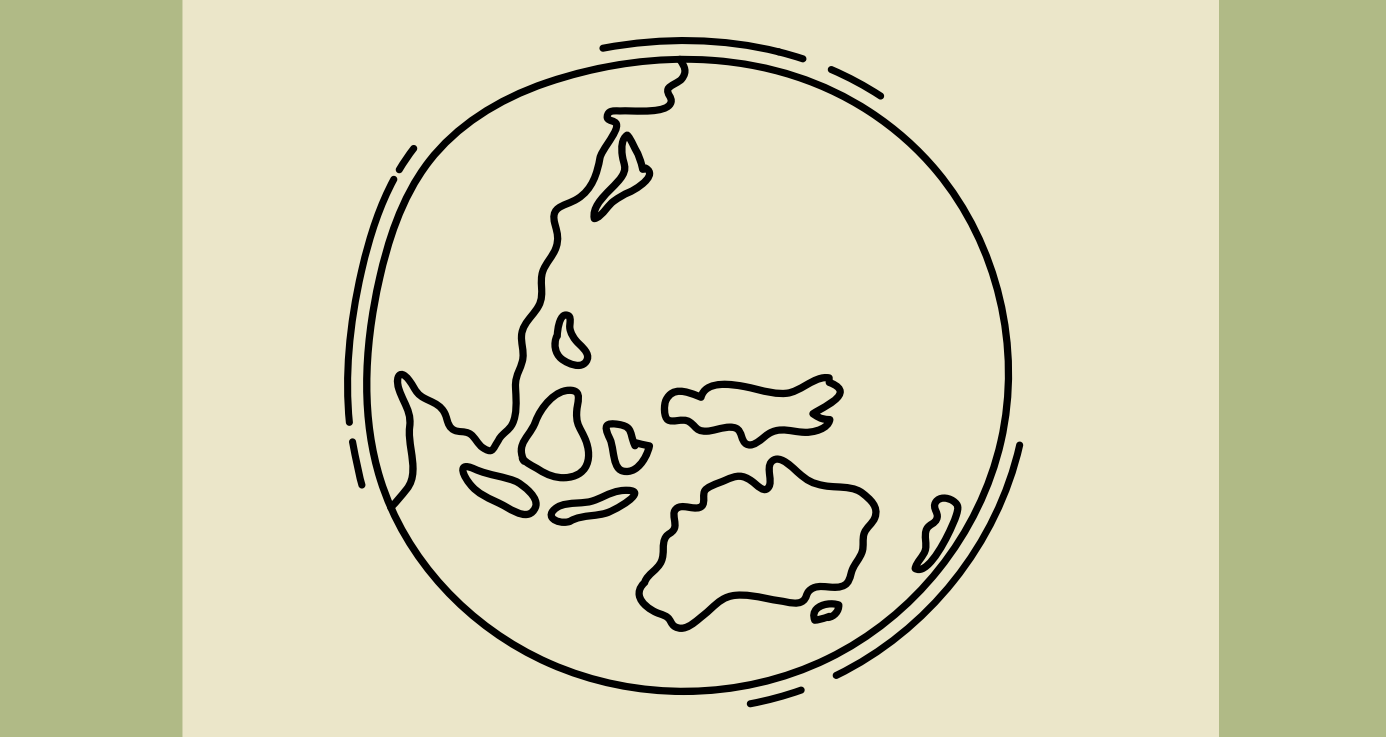Faculty
There are many ways faculty can advance sustainability at USC, from your actions on campus to your research and work in the classroom. Check out resources for you and your students at the links below.
For support with sustainability curriculum or experiential learning, please contact Dr. Chelsea Graham, Experiential Learning Manager, at cmgraham@usc.edu.
Looking for more ways to get involved? Find sustainability efforts like Events, Research Studies, Scholarships, Student Organizations and more in USC’s Green Directory.
Start your journey with these four sustainable actions:
1. Keep recyclable and compostable waste out of local landfills
Use three-stream waste diversion bins across the campus to sort your trash.
2. Carry a reusable water bottle and refill it at 200+ campus hydration stations.
Help USC continue to keep plastic beverage bottles – over five million and counting – from entering the waste stream.

3. Eat a plant-forward diet with the Choose to Reuse program
Get ready to make your dining choices even more eco-friendly! Coming soon, enjoy meals in reusable containers at select USC Campus Dining venues.
4. Use public transportation
Green your commute and save money by joining fellow Trojans in enrolling in the Student U-Pass Program or Employee Transit Subsidy.
Take the USC Employee Sustainability Training
Explore how USC is achieving its sustainability goals on campus and discover how to become a sustainable USC Employee! This online, two-part training is designed to engage you in sustainable practices both on and off campus.
Get the Supdate
Join the Supdate Slack workspace to donate/swap items, learn about upcoming events, find jobs/internships and more.
Visit the Sustainability Hub in STU 101
Lounge, study, and connect with the campus sustainability community.
Sustainability Across the Curriculum Initiative
Sustainability Across the Curriculum Initiative (SACI) was created to support faculty in developing new courses, programs, and curricular approaches that focus on sustainability. There are grants available to support faculty designing or modifying courses or creating new minors or programs.
Climate Momentum Project
The Climate Momentum Project is based upon a vision that through interdisciplinary leadership in storytelling, the arts, communication, and behavioral messaging, USC will help to catalyze people, organizations, and policymakers to adopt existing and future climate solutions.
Research Catalyst Program (RCP)
The USC Research Catalyst Program supports faculty-led projects across disciplines with strong ROI in both research and scholarship. The RCP is comprised of seven topic areas.
Sustainability Course Finder
The Sustainability Course Finder was created as a way for students to identify sustainability-related or focused courses. However, for faculty, it can be a useful way to understand how certain sustainability concepts interact with your classes.
President’s Sustainability Initiative Award
The President’s Sustainability Initiative Award has disbursed $1.5 million for research addressing neighborhood-scale air quality sensor networks, the PFAS drinking water crisis in Southern California, catalytic upcycling of polyvinyl chloride (PVC), and more.
Sustainability Research Finder
See the leaps and bounds USC is making in sustainability research.
Incorporating Sustainability into Courses
This resource document, created by Dr. Jill Sohm, provides an overview of various perspectives, tools, and resources that can be used by faculty hoping to incorporate sustainability into their classes. It is a great primer for those new to teaching sustainability, as well as a useful exploration of different perspectives for a seasoned sustainability educator.
Experiential Learning for Sustainability Guide
The Library Guide for Sustainability Experiential Learning is designed to support faculty with resources for incorporating sustainability-based experiential learning into their courses. It includes links to academic articles and books, as well as links to internal and external resources that can be used to engage students beyond didactic teaching.
Waste Resources
Access resources for universal and e-waste materials, request a recycling bin or get information for battery recycling/disposal and toner/ink cartridge recycling.
Sustainability Toolkit
All of the resources in this guide have been purposefully designed to address this commitment by encouraging individuals to put sustainable practices into action within their daily lives.
Sustainability in Research Labs at USC
All of the resources in this guide have been purposefully designed to address this commitment by encouraging individuals to put sustainable practices into action within their daily lives.
